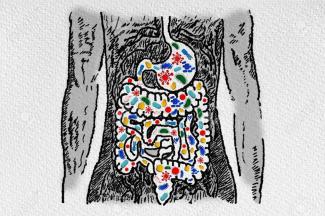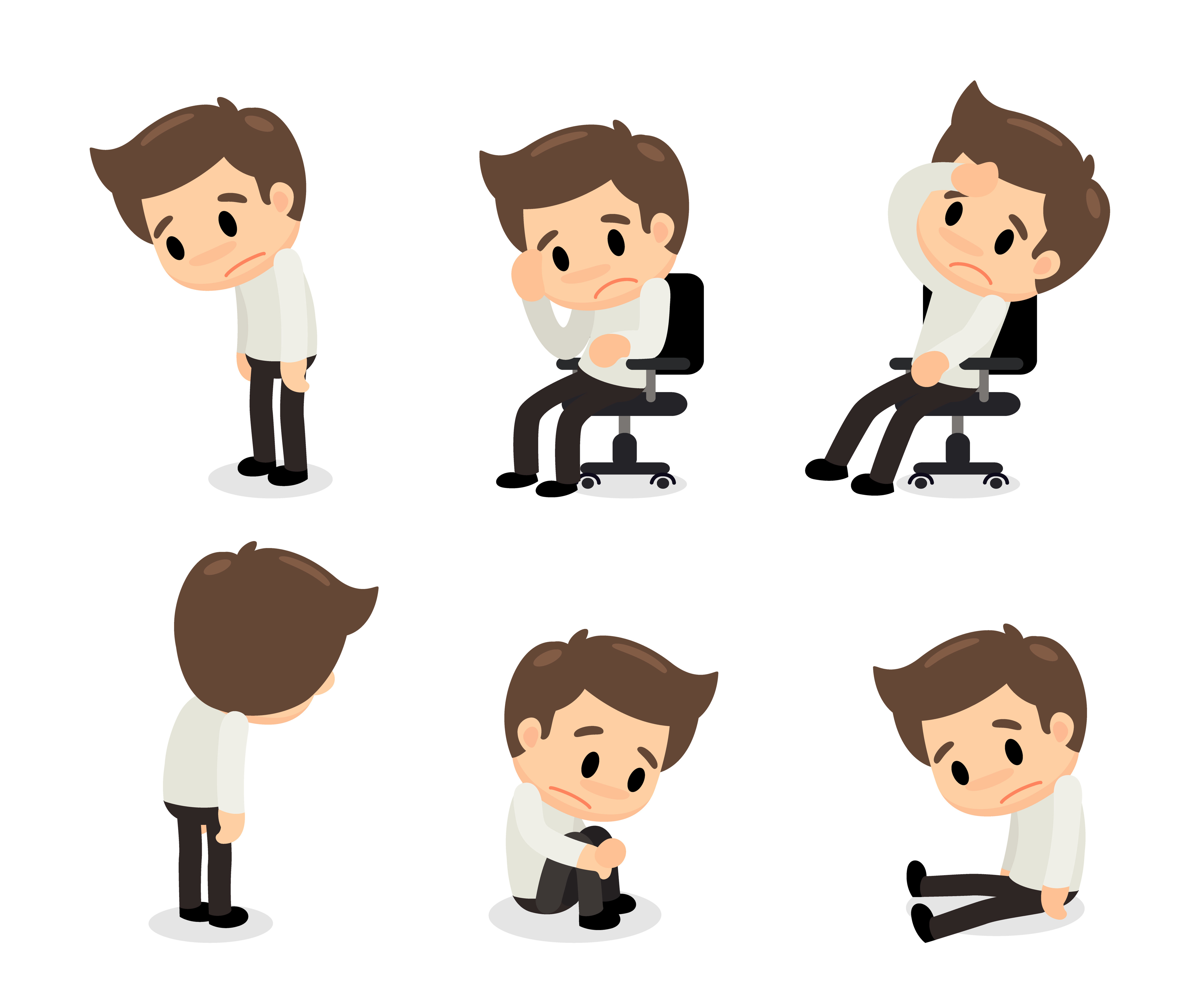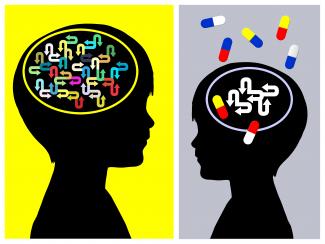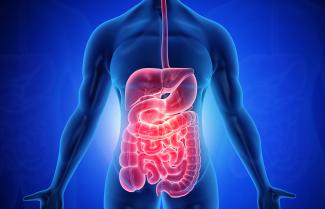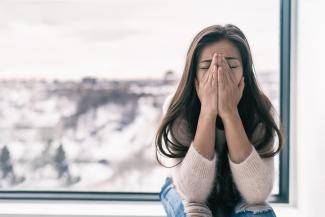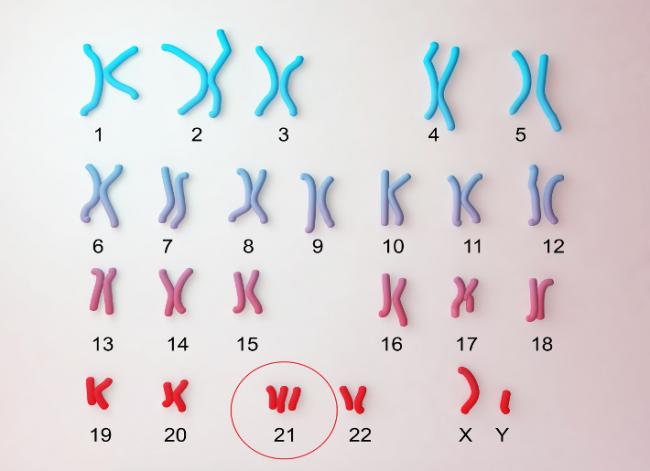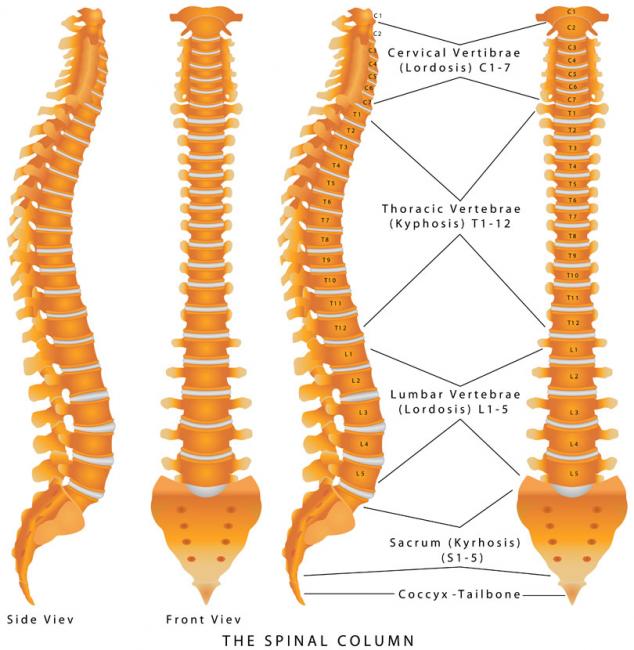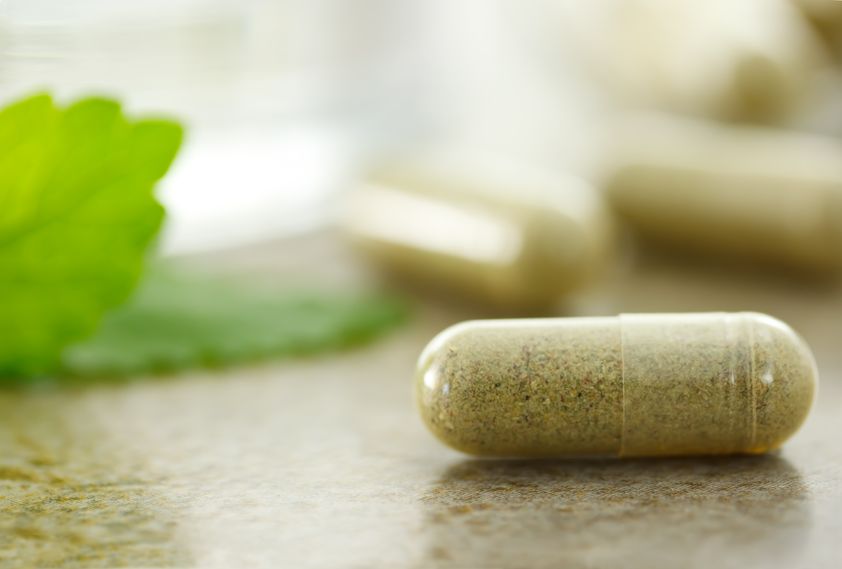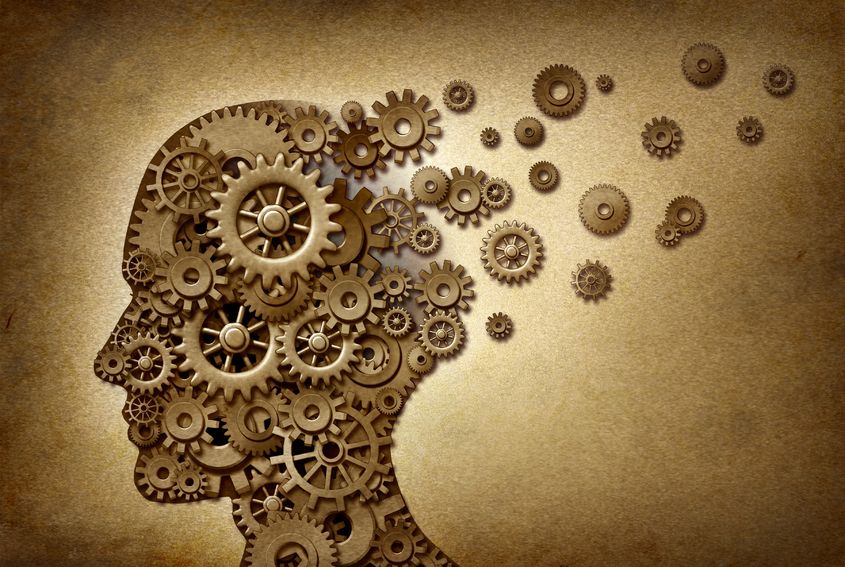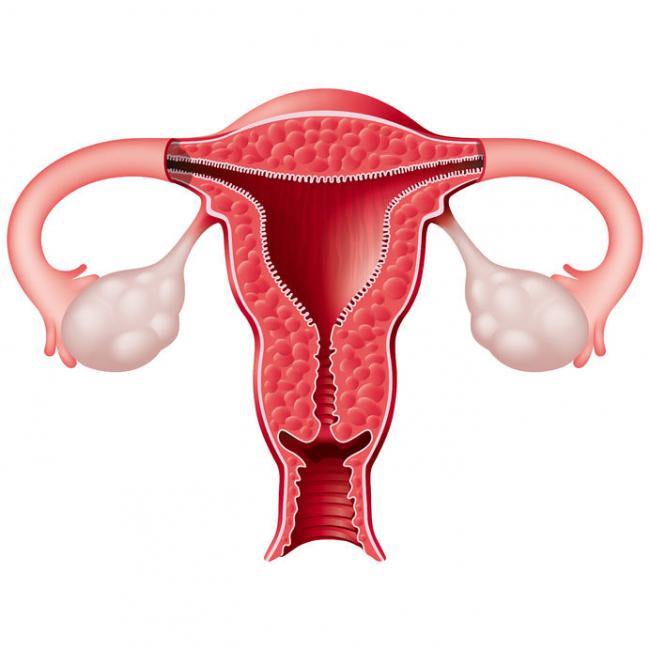Anxiety and Depression Evidence - Based Natural Solutions
ndmedic.com
Introduction and Background:
Depression and anxiety deplete your energy, desire, and hope. It makes it difficult for you to take a step that can help you to feel better. Depression is the second most frequent medical condition seen in common medical practice around the world; it is caused due to the alterations of the neurotransmitters in our central nervous system [1]. It is a mood disorder that occurs differently in different individuals.
Depression varies among individuals from mild depression to severe depression. The common prodrome of depression includes irritability, the feeling of sadness, loss of pleasure and interest, trouble concentrating, lack of energy, changes in appetite, worrying a lot and thoughts of suicide or death [3]. Consequently, Depression can affect your life badly and can disturb your routine activities.
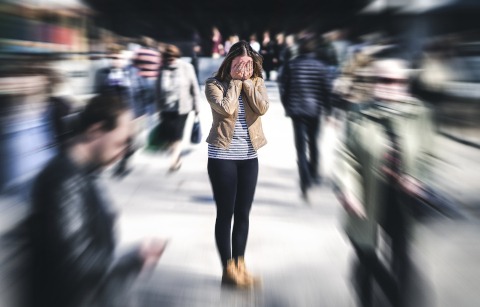
Likewise, Anxiety is acutely common; literally, the Centre for Disease Control and Prevention reports that anxiety is the most general class of mental disorders [2]. In life, we all experience anxiety at different life stages. Both children and adults experience anxiety. For most people, anxiety lasts for a short time. But for some people, it can go from days to weeks, months or for years. It can revert with time, and sometimes it becomes so severe that it influences your routine life. When the situation becomes much worse, then this is called an anxiety disorder. While symptoms of anxiety vary from individual to individual, usually people react in a very specific way when they feel anxious. The most common symptoms that you can feel when you are anxious are feeling restless, nervous, being tense, having a fast heartbeat, feeling of panic,
dread or danger, muscle twitching or trembling, heavy sweating, insomnia, gastrointestinal problems such as constipation, diarrhea or gas, feeling worrying, lethargy and weakness[3]. Anxiety is a part of everyone’s life but it depends on us how we handle it.
Many medications are used for the treatment of anxiety and depression. The most common that prescribes for treating anxiety and depression are Celexa, Zoloft, Prozac, Paxil, and Lexapro. But there is a side effect of using these medications; that’s why many individuals seek naturopathic mediation. This article will talk about some of the best naturopathic options available to treat depression and anxiety. But before you take any decision to pick any from the following options, you should discuss your health condition with any naturopathic doctor. It will ensure that you follow the best treatment strategy specific to your needs.
Natural Treatments:
Lifestyle Strategies:
- Exercise Regularly
Doing exercise regularly is a great strategy that can lead you to flare anxious energy. There are researches available that support this strategy. For Example, in 2015 a systematic literature review conducted to critically evaluate exercise effects on adults who have an anxiety disorder. They found that exercise can be a solution to anxiety. Though, the reviewer advised that research on the higher quality can only confirm how effective it is [4]. Another study suggests that exercise can be beneficial for those people who have anxiety due to quitting smoking [5] [6].
- Writing
Finding a strategy that can express your anxiety and depression can make you feel more comfortable. Many types of research report that journaling or some other kind of writing can help individuals to cope with anxiety and depression. Creative writing can help teens and children to lower the symptoms of anxiety and depression [7] [8].
- Time management strategy

A lot of people start feeling anxious and sometimes go into depression if they been exposed to high levels of stress or have been continuously experiencing a lot of workloads. We all often start feeling anxious when we have a lot of commitment at a time, such as work, family and health-related tasks. I recommend you to create a proper plan for all the next required action, it will keep you away from this kind of anxiety and depression. An effective time management plan can help you to focus on one task at one time. Online calendars and book-based planners can help you in managing multiple tasks.
There are many kinds of research exist that prove that the breakdown of larger tasks into a smaller task can help people to accomplish such tasks with minimum stress [9].
- Spend time with pets
Pets provide love, companionship, and support. Many kinds of research exits that suggest that spending time with pets can be very beneficial for people who are in various mental issues such as depression or anxiety. The research found that loving and caring crickets can improve mental health among older people [10]. Another amazing fact published in the 2015 systematic literature review suggested that spending time with horses can soothe stress and anxiety associated with the trauma [11]. You can also add strategies such as relaxation exercise, aromatherapy, and meditation in your life for treating mental disorders such as anxiety or depression.
Naturopathic Herbal Supplements:
Many Naturopathic suggests that there are some herbal supplements also exist that can help you a lot in coping with anxiety and depression.
- St. John’s Wort:
St. John’s wort is also commonly known as Hypericum Perforatum. This is a plant that has been using for treating many mental disorders for hundreds of years. Though, people should be very cautious if they are going to treat their anxiety or depression with this supplement. A systematic literature review of 2016 found that St. John’s wort worked more effectively than the placebo for treating mild depression to moderate depression; it also worked as well as the antidepressant medication [12].
- 5-HTTP:
5-HTP is also known as 5-hydroxytryptophan. 5-HTP is also very beneficial in improving and regulating the serotonin level in the brain. Serotonin is the neurotransmitter that affects a lot on the person’s mood. Research proved that 5-HTP supplements alleviated depression in patients in one day [13].
- SAMe:
This is the short form for S-adenosyl methionine. SAMe is a chemical that naturally produces in the human body. Research conducted in 2016 on the randomized controlled trials for the use of this supplement in treating depression in adults did not found any significant results. But they found that this supplement can produce the same effect as the antidepressants such as escitalopram or imipramine [14]. Most other studies that still exist related to this supplement for treating depression and anxiety did not produce any significant result. There is a need for more high-quality research required in this area. In Europe, however, this supplement is commonly used as an antidepressant.
- Omega 3- fatty acids:
A 2015 study conducted that omega 3-fatty acids are not very useful for treating depression. While the authors of this study also reported that there are nor no serious side effects produce by using this supplement. They also suggested that this supplement can only be useful in treating depression that product due to the deficiency of omega-3 [15].
- Saffron:
There are many studies exist that depict the Saffron as an effective supplement for treating depression and anxiety. Such as A 2018 non-systematic literature review conducted suggested saffron as the antidepressant for the treatment of anxiety and depression [16].
- Curcumin:
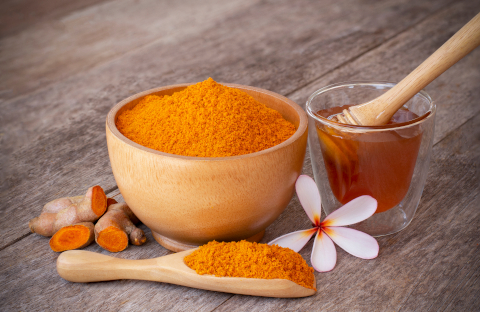
Curcumin has antioxidant properties that can help in the reduction of oxidative stress. Oxidative stress is the main cause of a depressive disorder. So, curcumin can act very effectively in treating depression. A study shows that Curcumin acts as anti-anxiety and antidepressant. It releases serotonin neurotransmitter that helps in lowering stress in the brain. Further, they suggested that the neurotransmitter that curcumin releases also offers protection to the brain [17]. Another interesting study of 2015 suggested that curcumin can act as anti-anxiety among individuals who are obese [18].
- Vitamin D:
Research shows that vitamin D plays an essential role in warding off anxiety and depression. In a study, authors found that people who were depressed after receiving vitamin D showed a noticeable improvement in their mood [19]. A study of 2015 reported that individuals found with symptoms of depression or anxiety who have a lower level of Calcidiol. Calcidiol is a byproduct that produces a breakdown of vitamin D [20].
- Zinc:
Zinc is an essential mineral for the human body. Its deficiency can lead to emotional instability, depression, anxiety, and irritability [21]. Another study showed that zinc has very potential roles in the treatment of depressive disorders [22].
- Vitamin B12:
Vitamin B12 helps a lot in improving mood. Its deficiency can reduce serotonin chemicals that help to regulate mood. So, the reduction of serotonin can cause a depressive mood. A study revealed that vitamin B12 deficiency doubles the risk of a very severe kind of depression [23].
- Folate (Vitamin B9):
The deficiency of folate (also known as folic acid) is also linked with depression. Folate acts as an antidepressant in improving mood. Many studies exist that revealed that folic acids play a very essential role in treating anxiety and depression [24] [25].
Conclusion:
Untreated anxiety and depression can make your life stressful. Though you can treat the anxiety and depression with many natural treatments such as lifestyle changes strategies, and through some herbal supplements and medications. A person may have to try many methods to find the best way that works for them perfectly. Your doctor can help you in a good way in this regard.
References:
[1] Remick RA. Diagnosis and management of depression in primary care: a clinical update and review. CMAJ 2002; 167:1253-60
[2] Centers for Disease Control and Prevention. The burden of mental illness. https://www.cdc.gov/mentalhealth/basics/burden.htm · Updated 2013 10 04.
[3] Genes, S., 1987. Symptoms of Anxiety and Symptoms of Depression. Arch Gen Psychiatry, 44, pp.451-457.
[4] Stonerock, G.L., Hoffman, B.M., Smith, P.J. and Blumenthal, J.A., 2015. Exercise as a treatment for anxiety: systematic review and analysis. Annals of behavioral medicine, 49(4), pp.542-556.
[5] Smits, J.A., Zvolensky, M.J., Davis, M.L., Rosenfield, D., Marcus, B.H., Church, T.S., Powers, M.B., Frierson, G.M., Otto, M.W., Hopkins, L.B. and Brown, R.A., 2016. The efficacy of vigorous-intensity exercise as an aid to smoking cessation in adults with high anxiety sensitivity: A randomized controlled trial. Psychosomatic medicine, 78(3), p.354.
[6] Pérez-Stable, E.J., Marin, G., Marín, B.V. and Katz, M.H., 1990. Depressive symptoms and cigarette smoking among Latinos in San Francisco. American Journal of Public Health, 80(12), pp.1500-1502.
[7] Gortner, E.M., Rude, S.S. and Pennebaker, J.W., 2006. Benefits of expressive writing in lowering rumination and depressive symptoms. Behavior therapy, 37(3), pp.292-303.
[8] Rombough, K.L., 2016. The" Write" Way: Creative Writing as a School-based Approach to Treat Childhood and Adolescent Anxiety (Doctoral dissertation).
[9] McCay, J.T., 1959. The management of time. Englewood Cliffs, NJ: Prentice-Hall.
[10] Ko, H.J., Youn, C.H., Kim, S.H. and Kim, S.Y., 2016. Effect of pet insects on the psychological health of community-dwelling elderly people: A single-blinded, randomized, controlled trial. Gerontology, 62(2), pp.200-209.
[11] O'haire, M.E., Guérin, N.A. and Kirkham, A.C., 2015. Animal-assisted intervention for trauma: A systematic literature review. Frontiers in Psychology, 6, p.1121.
[12] Apaydin, E.A., Maher, A.R., Shanman, R., Booth, M.S., Miles, J.N., Sorbero, M.E. and Hempel, S., 2016. A systematic review of St. John’s wort for major depressive disorder. Systematic reviews, 5(1), p.148.
[13] KLINE, N.S., SACKS, W. and SIMPSON, G.M., 1964. Further studies on: one day treatment of depression with 5-Htp. American Journal of Psychiatry, 121(4), pp.379-381.
[14] Sabina, A., 2005. S-adenosylmethionine (SAMe) as a treatment for depression: a systematic review. About CSCI, 28(3), pp.132-139.
[15] Bhat, S.A. and Ara, A., 2015. Omega-3 fatty acids and the treatment of depression: a review of scientific evidence. Integrative medicine research, 4(3), pp.132-141.
[16] Shafiee, M., Arekhi, S., Omranzadeh, A. and Sahebkar, A., 2018. Saffron in the treatment of depression, anxiety, and other mental disorders: Current evidence and potential mechanisms of action. Journal of affective disorders, 227, pp.330-337.
[17] Lopresti, A.L., Maes, M., Maker, G.L., Hood, S.D. and Drummond, P.D., 2014. Curcumin for the treatment of major depression: a randomized, double-blind, placebo-controlled study. Journal of affective disorders, 167, pp.368-375.
[18] Esmaily, H., Sahebkar, A., Iranshahi, M., Ganjali, S., Mohammadi, A., Ferns, G. and Ghayour-Mobarhan, M., 2015. An investigation of the effects of curcumin on anxiety and depression in obese individuals: A randomized controlled trial. Chinese journal of integrative medicine, 21(5), pp.332-338.
[19] Fazelian, S., Amani, R., Paknahad, Z., Kheiri, S. and Khajehali, L., 2019. Effect of Vitamin D supplement on mood status and inflammation in Vitamin D deficient Type 2 diabetic women with anxiety: A randomized clinical trial. International journal of preventive medicine, 10.
[20] Bicikova, M., Duskova, M., Vitku, J., Kalvachova, B., Ripova, D., Mohr, P. and Stárka, L., 2015. Vitamin D in anxiety and affective disorders. Physiological research, 64, p.S101.
[21] Rafalo, A., Sowa‐Kucma, M., Pochwat, B., Nowak, G. and Szewczyk, B., 2016. Zinc Deficiency and depression. In Nutritional Deficiency. IntechOpen.
[22] Swardfager, W., Herrmann, N., McIntyre, R.S., Mazereeuw, G., Goldberger, K., Cha, D.S., Schwartz, Y. and Lanctôt, K.L., 2013. Potential roles of zinc in the pathophysiology and treatment of major depressive disorder. Neuroscience & biobehavioral reviews, 37(5), pp.911-929.
[23] Penninx, B.W., Guralnik, J.M., Ferrucci, L., Fried, L.P., Allen, R.H. and Stabler, S.P., 2000. Vitamin B12 deficiency and depression in physically disabled older women: epidemiologic evidence from the Women’s Health and Aging Study. American Journal of Psychiatry, 157(5), pp.715-721.
[24] Coppen, A. and Bolander-Gouaille, C., 2005. Treatment of depression: time to consider folic acid and vitamin B12. Journal of psychopharmacology, 19(1), pp.59-65.
[25] Zhao, G., Ford, E.S., Li, C., Greenlund, K.J., Croft, J.B. and Balluz, L.S., 2011. Use of folic acid and vitamin supplementation among adults with depression and anxiety: a cross-sectional, population-based survey. Nutrition journal, 10(1), p.102.





